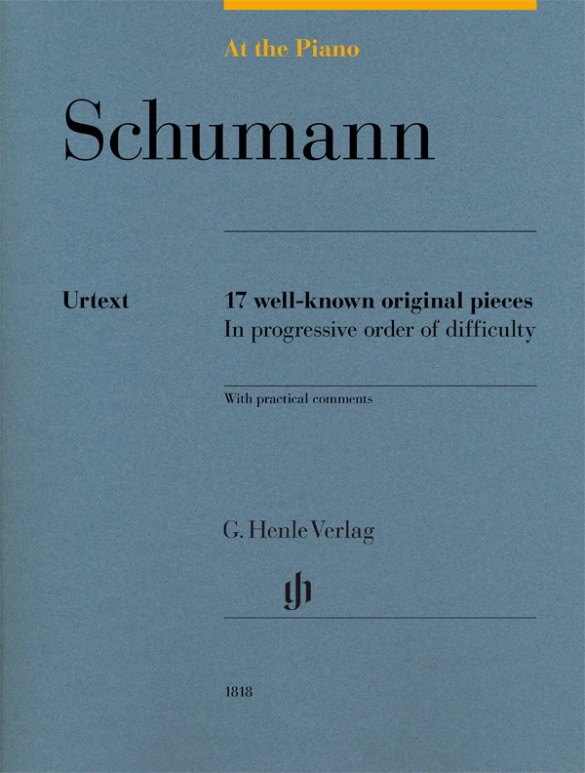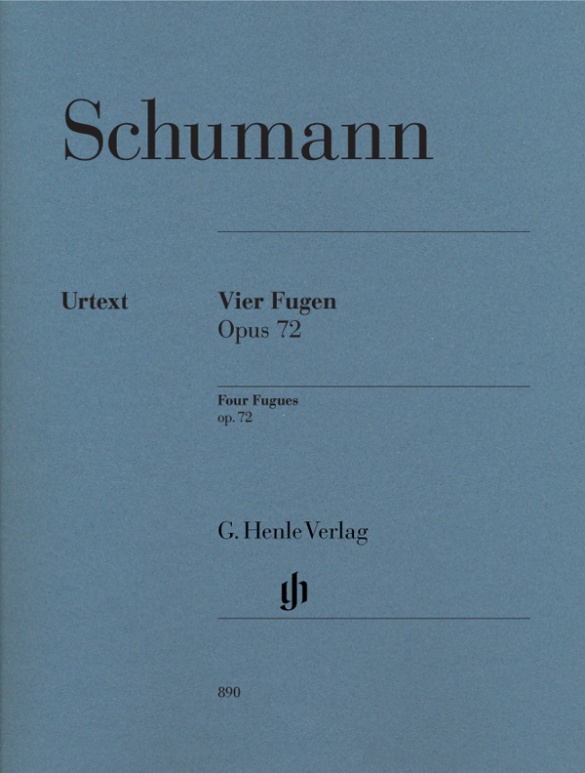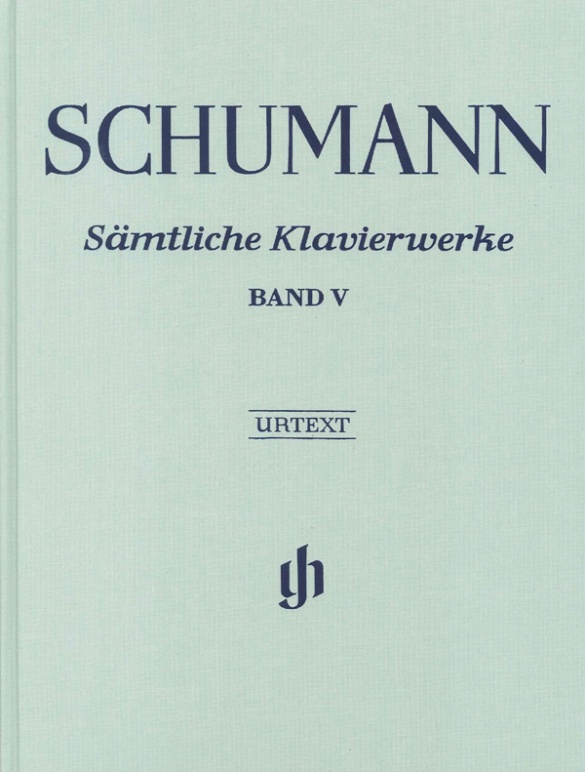

Robert Schumann
Complete Piano Works, Volume V
For the first time since Clara Schumann’s Complete Edition of 1879–93, all of the works for piano solo are appearing as one editorial project. Spanning almost ten years of painstaking work, all of the Schumann titles published by G. Henle Publishers have undergone a careful revision. The Schumann expert Ernst Herttrich has closely examined each edition and also dedicated himself to those works that were previously missing from our catalogue. The result is being published in this new collection, comprising six volumes, which are available both in paperbound and clothbound editions, as well as study editions in a slipcase. They replace the former four volumes (HN 108–HN 115). Arranged clearly according to opus numbers, it includes not only all of Schumann’s piano works, revised to reflect the latest scholarly findings, but also informative accompanying texts, alternative versions and much more besides.
Further information
mws-henle.cms.title-works.headline
mws-henle.cms-product-detail.composer-headline
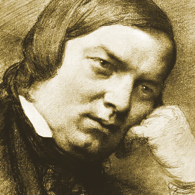
Robert Schumann
Connected with his oeuvre is the term he coined, Poetic Music, with which he strove for a fusion of literature and music, a paradigm particularly seen in his lyric piano pieces prior to 1839. Thereafter he devoted himself to other genres (song, symphony, chamber music, among others).
| 1810 | Born in Zwickau on June 8, the son of a bookdealer. |
| from 1828 | Studies law in Leipzig, piano with Friedrich Wieck. Decision to pursue a career in music. |
| 1830–39 | He exclusively composes piano works, mostly cycles, including “Papillons,” Op. 2 (1829–32); “Carnaval,” Op 9 (1834/35); “Davidsbündlertänze,” Op. 6 (1837); “Kinderszenen” (“Scenes from Childhood”), Op. 15 (1837/38); “Kreisleriana,” Op. 16 (1838); “Noveletten,” Op. 21 (1838). |
| 1832 | A paralysis of a finger in his right hand makes a career as a pianist impossible. Founding in 1833 of the fantasy brotherhood the “Davidsbund” (“League of David”). |
| 1835–44 | Editor of the Neue Zeitschrift für Musik (New Journal of Music). |
| 1840 | Marriage to Clara Wieck; 138 songs, including the Eichendorff Liederkreis, Op. 39; the song cycle “Dichterliebe,” Op. 48 |
| 1841 | Symphony No. 1 in B-flat major (“Spring” Symphony), Op. 38, and Symphony No. 4 in D minor, Op. 120. |
| 1842 | Three string quartets, Op. 41; further chamber music. |
| 1843 | Teacher of composition at the Leipzig Conservatory. Oratorio “Paradise and the Peri,” Op. 50. |
| 1845 | He settles in Dresden. Journey to Russia. |
| 1845 | Piano Concerto in A minor, Op. 54, Symphony No. 2 in C major, Op. 61. |
| 1850 | City music director in Düsseldorf. Premiere in Leipzig of his opera “Genoveva,” Op. 81. Symphony in E-flat major (“Rhenish”), Op. 97; Cello Concerto in A minor, Op. 129. |
| 1853 | Beginning of his friendship with Brahms. Completion of the Scenes from Faust. Violin Concerto in D minor for Joseph Joachim. |
| 1854 | Suicide attempt and admission to the psychiatric institution in Endenich, near Bonn. |
| 1856 | Death in Endenich on July 29. |
mws-henle.cms-product-detail.author-headline
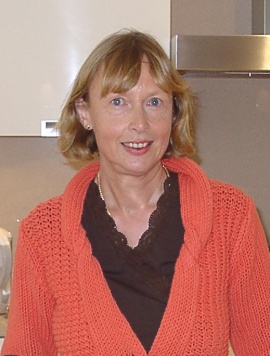
Wiltrud Haug-Freienstein (mws-henle.person.role.HERAUSGEBE)
Dr. Wiltrud Haug-Freienstein, born in 1955 in Riedlingen, read musicology at the Ludwig-Maximilians-Universität in Munich and was awarded her doctorate in 1987 for her thesis entitled “Motiv, Thema und Kompositionsaufbau bei Franz Liszt”.
She started out as a freelance editor for G. Henle Publishers, where she became a permanent editor in 1987, following a three-year period at the Richard Wagner Complete Edition in Munich. She remained at G. Henle Publishers until 2008. She edited and supervised the publication of numerous Urtext editions.

Ernst Herttrich (mws-henle.person.role.HERAUSGEBE)
Dr. Ernst Herttrich, born in 1942 in Würzburg, read musicology, history, German and theology at the universities in Würzburg and Cologne. In 1970 he earned his doctorate in Würzburg with a study of the expression of melancholy in the music of Mozart.
From 1970 to 1990 he was an editor at G. Henle Publishers in Munich, after which he was Head of the Beethoven Complete Edition for over 15 years. In 1999 he took over as Head of the Beethoven-Haus Publishers, and from 2001 was made Head of the Beethoven-Archiv, the research centre at the Beethoven-Haus.
He has been a visiting professor at Meiji Gakuin University in Tokyo and has undertaken several lecture tours both there and to Kyoto. His research interests include source studies, editorial techniques and music history. Herttrich’s publications include “Beethoven. Liederkreis an die ferne Geliebte” (Bonn 1999) and “Ludwig van Beethoven. Biographie in Bildern” (Bonn, 2000). Herttrich has edited over 100 Urtext editions for G. Henle Publishers.
Leif Ove Andsnes (mws-henle.person.role.FINGERSATZ)
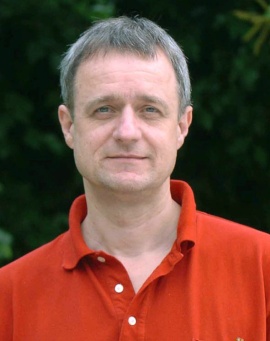
Andreas Groethuysen (mws-henle.person.role.FINGERSATZ)
Prof. Andreas Groethuysen, born in 1956 in Munich, studied music with Ludwig Hoffmann in Munich and, on a scholarship from the “Studienstiftung des Deutschen Volkes”, with Peter Feuchtwanger in London.
After several years as a soloist, Groethuysen formed a piano duo with Yaara Tal, which has now become the focus of his artistic work. The duo regularly performs in many European countries, in Israel, China, North and South America. In exclusive cooperation with SONY CLASSICAL the internationally acclaimed piano duo has released a great many CDs – 28 to date – almost all of which have been awarded prizes.
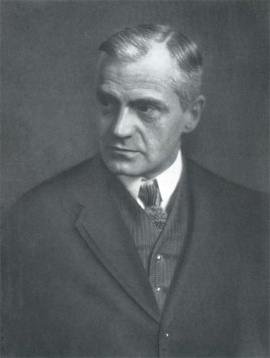
Walther Lampe (mws-henle.person.role.FINGERSATZ)
Prof. Walther Lampe, born in 1872 in Leipzig, died in 1964 in Munich, studied the piano with Clara Schumann at the Hoch’schen Konservatorium in Frankfurt, as well as music theory and composition. He concluded his studies in Berlin, where he was a student of Herzogenberg and Humperdinck.
He first appeared as a concert pianist, but in 1920 was appointed as a professor and head of a class at the Münchener Akademie der Tonkunst. After Lampe was given emeritus status in 1937, he took on a piano class at the Mozarteum in Salzburg. Günter Henle, who grew up in Munich, was a private pupil of Lampe’s, from the age of 15 (in 1914). In his autobiography he wrote of his piano teacher in the following glowing terms:
“The years in which Walther Lampe, the renowned pianist and Head of piano master-classes in Munich and Salzburg, instructed me in the higher mysteries of piano playing, are amongst the most treasured memories of my youth. […] Lampe, himself an excellent concert pianist, had the reputation of being one of the leading teachers. Due to his practical experience of many decades he was able to pass on his great knowledge and skill both in words and through his own playing in a highly inspiring and supportive manner. His interpretations of Mozart were positively divine. […] I remain indebted to him for his great artistic suggestions and his friendship, which he shared with me over decades.”
During the first few years of World War II, Günter Henle looked up his old teacher and friend in Munich several times to play music with him. It was self-evident for Günter Henle to inform Walther Lampe of his plans to set up his music publishing house shortly after the end of the war, asking him for his help and advice. Lampe was very actively involved in the first editions: almost all of the Urtext editions published in the early years were supervised intensively by Lampe, a fact which is attested by the comprehensive correspondence in the archives of G. Henle Publishers. And Lampe also contributed his own fingerings to almost all of these editions. It is a very impressive list of titles, which even today still form part of G. Henle Publishers’ core repertoire.

Klaus Schilde (mws-henle.person.role.FINGERSATZ)
Prof. Klaus Schilde, born in 1926, spent his childhood in Dresden. There he was greatly influenced by Walter Engel, who taught him the piano (Kodaly method), composition and violin. From 1946–1948 he studied at the music conservatory in Leipzig with Hugo Steurer. After moving to the west in 1952 he studied with Walter Gieseking and Edwin Fischer, as well as with Marguerite Long, Lucette Descaves and Nadia Boulanger in Paris.
Schilde won numerous prizes. From 1947 onwards he gave concerts as a soloist and chamber musician on almost every single continent with renowned orchestras. He taught at the music conservatories in East Berlin Detmold, West Berlin, Munich, Tokyo (Geidai) and Weimar. From 1988–1991 he was President of the Staatliche Hochschule für Musik und Theater in Munich, where he also taught for decades as a professor. There are numerous radio and television broadcasts with Klaus Schilde as well as CD recordings. Schilde has contributed fingerings to almost 100 Henle Urtext editions.
Prof. Klaus Schilde passed away on 10 December, 2020.
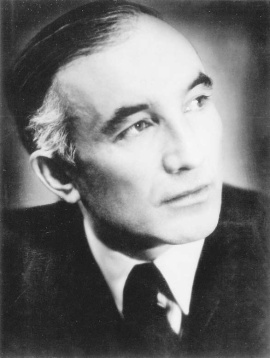
Hans-Martin Theopold (mws-henle.person.role.FINGERSATZ)
Prof. Hans-Martin Theopold, was born to a pastor’s family in Detmold on 22 April 1904, the youngest of five children. Even as a child he often played the organ in the “Marktkirche” and soon began to take piano lessons with Theodor Vehmeier. At the age of 17 he made his debut at the Landestheater in Detmold with Ludwig van Beethoven’s Piano Concerto in C major under Friedrich Quast (Herford). Following the successful completion of his schooling at the Gymnasium Leopoldinum in Detmold, he went on to study music and piano (main subject): from 1922–23 at the “Württembergische Hochschule für Musik” in Stuttgart (with Max Pauer, 1866–1945) and then from 1923–1928 at the “Staatliche Akademische Hochschule für Musik” in Berlin-Charlottenburg (with Richard Rössler, 1880–1962, and Waldemar Lütschg, 1877–1948). After completing his piano studies (graduating with “very good”) in 1928, he began an active solo career both at home and abroad (USA, Switzerland, Scandinavia, the Baltic states, the Balkans). As a member of the Chamber Music Association of the State Opera in Berlin (from 1933) he also gave countless chamber music concerts, including ones with his violin partner Gustav Havemann (1882–1960).
In the 1930s, audiences and the press alike raved about Theopold’s extraordinary gifts as a pianist: “This young player has it in him to soon become one of the best players in Germany. A superior technique, a wonderful singing piano tone, the strength of a Titan, but not at all hard due to the incomparably gentle elasticity of his touch” [Münchener Zeitung, 21 November 1933]. – “H.M. Theopold gave convincing proof of his splendid pianistic ability in an extremely gripping sonata with a modern idiom by Alban Berg, but predominantly in Schubert’s […] Wanderer Fantasy, which he played with a polished technique and creative power” [Weser-Zeitung, 21 December 1932]. Theopold was awarded several prizes, including the “Grotrian-Steinweg-Preis” in 1928.
In 1937 Theopold became a teacher for the piano (main subject) at the “Bayerisches Staatskonservatorium der Musik” in Würzburg. In 1939 he married Irene Tatjana Wülfing, who was from Moscow. From 1943 he became head of the piano master-class at the “Nordische Musikschule” in Bremen, although this was interrupted by the events of the war. Following his return from a prisoner of war camp, Theopold gave concerts and taught although he did not hold a permanent position. From 1955–1956 he was acting head of the piano master-class at the “Bergisches Landeskonservatorium” in Wuppertal, finally being appointed Professor for Piano on 1 April 1956 at the “Staatliches Institut für Schul- und Volksmusik” in Detmold, later at the “Nordwestdeutsche Musikakademie Detmold” (today “Hochschule für Musik Detmold”), where he taught for decades. On 30 September 1969 he retired. “His students extol his pedagogical gifts. […] Humour, charm, helpfulness and kind-heartedness moderate the strictness of his professional ethos as a musician and teacher” (Lippische Rundschau, 23 April 1969; see also: Lippische Landeszeitung 22 April 1969 on the occasion of Theopold’s 65. birthday: “Prof. Theopold, a modest but at the same time energetic man, is an enthusiastic teacher”). Theopold died in Detmold in 2000.
Contact with Günter Henle was established directly after the publishing house was founded, when Theopold thanked the publishers with great enthusiasm for its first Urtext editions. His extensive correspondence with the publishing house was bequeathed to the Lippische Landesbibliothek in 2014 to ensure its long-term accessibility to the public. The letters testify not only to Theopold’s great interest in musical sources and text questions but also to his initial strict refusal (!) of fingerings in text-critical editions such as these: “For fingerings are and remain something individual no matter what their quality” (letter to Günter Henle from 26 May 1949 {publishing house archives}). Günter Henle was not, however, to be swayed and stressed the necessity of fingerings in his Urtext editions: “It is better to publish the Urtext […] with fingerings that are not necessary for a few individuals, or that might even, I admit, be considered irritating here and there” (letter to Hans-Martin Theopold of 17 September 1953).
It was only in 1955 that Theopold accepted Günter Henle’s offer of contributing fingerings for an Urtext edition that was in the process of being prepared by way of trial. (HN 74, Schubert, Complete Dances for Piano, Volume 1). Following this, Theopold was commissioned to write the fingerings for nearly all of the publishing house’s new editions in quick succession. Günter Henle, himself a good pianist, greatly valued Theopold’s fingerings, and also the many suggestions regarding the musical text in question. In addition, Theopold was always very reliable, thorough and conscientious – something that is not unimportant with editorial work!
Thus to date Hans-Martin Theopold has provided the fingerings for the greatest number of Henle Urtext editions by far – 226 editions (!) in total.
We would like to thank Mrs Margot Theopold and the Hochschule für Musik in Detmold for their great support in providing biographical material.
G. Henle Verlag
Product Safety Informations (GPSR)

G. Henle Verlag
Here you can find the information about the manufacturer of the product.G. Henle Verlag e.K.
Forstenrieder Allee 122
81476 München
Germany
info@henle.de
www.henle.com
Wer während der letzten Jahre das sukzessive Erscheinen dieser Einzelausgaben, die bei gleichbleibender HN-Nummer jeweils die vorhergehende Ausgabe ablösten, verfolgt hat, konnte schon ahnen, welche Freude es sein würde, einmal das Ganze in Händen zu halten. ... Fazit: eine Ausgabe, die Maßstäbe setzt, und eine Quelle der Freude für jeden Schumann-Freund!
VdM Literaturempfehlungen für den Unterricht, 2011Stattliche 38 Einzelbände, jeweils sechs Sammelbänden der bekannten Broschur- oder Leinen-Ausgabe und schließlich die sechs verkleinerten Bänder der Studien-Edition - das macht (oh Wunder der Kabbalistik) 56 Bände, die hintereinander gelegt eine Reihe von gut siebzehn Metern bilden und einen halben Zentner wiegen. … Treibende Kraft hinter diesem verlegerischen Kraftakt ist der Musikwissenschaftler Ernst Herttrich, der mit dieser Ausgabe noch aus dem „Ruhestand“ heraus (der bei ihm eher ein klassischer Unruhestand zu sein scheint) einen Markstein in der Editionsgeschichte setzt und sich nun entspannt zurücklehnen kann. … „Consumatum est - es ist vollbracht!"
Piano News, 2010Die neue Edition ist in Umfang und Seriosität ausserordentlich imposant. Nebst einem akribischen Kritischen Kommentar hat Herausgeber Ernst Herttrich zu jedem Werk ein ausführliches Vorwort verfasst. Man liest diese Texte mit grossem Gewinn.
Schweizer Musikzeitung, 2010Im praktischen Schuber und aufgeteilt in sechs Teile lässt sich das klavieristische Oeuvre Schumanns am besten lesenderweise nachverfolgen.
Fono Forum, 2010Vielleicht ist die wissenschaftlich-kritische Neuausgabe seiner 38 Klavierwerke, die erste seit Clara Schummans Pioniertat vor 120 Jahren, der wichtigste Beitrag zum Schumann-Jahr 2010.
Westfälische Nachrichten, 2010推荐
autogenerated_cross_selling
本书目其他版本


